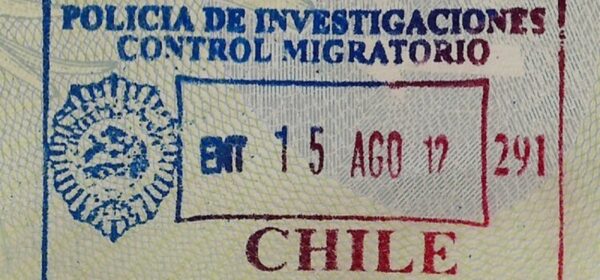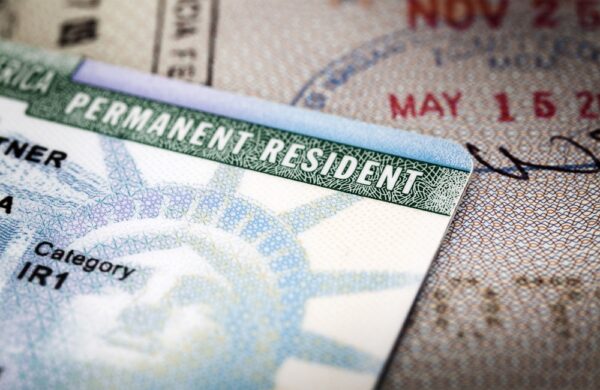Italy is a top choice for many professionals due to its active job market, breathtaking scenery, and rich cultural heritage. If you're planning to work in this beautiful country, understanding how to get a work visa in Italy is your first step. Although organized, the procedure requires extensive planning to be successful.
Getting a work visa to Italy is a two-step process of applying for a working visa after getting a job offer and fulfilling the specified conditions set by the Italian immigration office. This guide makes the procedure easier, walking you through things like the needed papers and how long it takes to apply and get a visa, among others. Italy has opportunities for skilled workers, entrepreneurs, and freelancers. If you fall into any of these categories, it’s important to know the main steps you need to take to turn your dream of working in Italy into reality.
Understanding Italy Work Visa Basics
Italy, as a member of the EU, permits individuals from other EU countries to work without requiring a specific visa or authorization. It is also free for citizens of Switzerland and the European Economic Area (EEA) to work in Italy.
Workers who are not citizens of the European Union, EEA, or Switzerland will require a Nulla Osta or Italy work visa. A work visa in Italy is classified as a long-stay visa, sometimes known as a National or D-Visa. It's crucial to remember that an Italian work visa only permits workers to enter the nation. Once they arrive in Italy, they will need to get a residence visa in order to stay and begin working.
Furthermore, Italy has a quota for the number of work permits it will grant. This is known as a Decreto Flussi (which means “flow decree”). The Decreto Flussi commenced in April 2019, and the Italian government issued 30,850 work licenses, the same number as in 2018. The Italian government grants work permits to both seasonal and non-seasonal workers through the Decreto Flussi. Thus, you are only eligible to apply for a work visa to Italy if:
- The Decreto Flussi is open.
- The annual quota has not been reached.
- Your Italian employer will apply for your work permit.
- You're issued a work permit.
How to Get a Work Visa in Italy as a Foreign National
As a foreign citizen, you wish to relocate to Italy in order to get employment. Unfortunately, in order for a non-EU national to seek an Italy work visa, they must already be employed in Italy. The procedure for obtaining authorization to reside and work in Italy for non-EU nationals consists of three steps:
- Locate a prospective employer in Italy who will employ you and apply for your work visa (they must apply for your work authorization in Italy). Once your employer has gotten and sent you your work permit, you are able to:
- Apply for the Italy work visa at the Italian Embassy in your country.
Only if you are granted an Italy work visa you can travel to Italy and apply for a valid Residence Permit so that you can lawfully remain and work there.
Documents Required to Apply for the Italy Work Visa
To understand how to get a work visa in Italy for a non-EU citizen, it is important to have a set of supporting documents when applying for an Italian work visa. The following are extra requirements for an Italy work visa:
- Copy of your signed work contract.
- Completed Italian Long-Stay Visa Application form.
- The original copy of your Nulla Osta.
- A valid passport
- Birth Certificate
- Passport-size pictures
- Proof of accommodation
- Diplomas/ Other certificates
- Proof of sufficient financial means
- Proof of paid visa fees
- Copy of flight itinerary
- Proof of health and travel insurance
Remember that this is not a complete list of visa requirements. The requirements for a work visa to Italy vary by country and situation. Therefore, you should always contact the relevant government where you are applying for a work visa to find out more.
Italy Work Permit Requirements
You have to send some supporting documentation to your Italian employer, who will be processing your work permit application. Each local immigration office may have different document requirements. Therefore, it's essential to find out from your company what you must submit. In general, getting an Italian work permit (Nulla Osta al lavoro) will require the following relevant documents:
- A valid ID or passport.
- Work contract including salary, terms of employment, and contract duration.
- Employer information, including the legal name of the business, address, and Chamber of Commerce registration number.
- A stay contract that states the employer will notify employees of any modifications to their employment contract. An appropriate Italian accommodation that fulfills local housing standards. If the employee is expelled from Italy, the company will cover the expense of repatriation.
Where and When to Apply for an Italy Work Visa
As part of learning how to get a work visa in Italy, it's important for you to know the correct timing and submission location for your application to ensure it's processed efficiently. If the Italian immigration office issues you a work permit, your company must forward it to you (typically electronically). The Italian government also notifies the Italian Embassy/Consulate in the country where you intend to apply for a work visa. If your nation does not have an Italian representation, then apply at the Visa Application Centre.
You can also check another Schengen country's representative to whom Italy has outsourced visa applications. Once you have gathered all required paperwork and downloaded and filled out the Italy Visa Application Form, you must personally apply. The Italian government will review your application and determine if you are eligible for a work visa. If you get the Italy work visa, there's a six months deadline to take it and travel to Italy.
What to Do After You Arrive in Italy
Once you’ve understood how to get a work visa in Italy, the next steps are quite easy. Here are the things to do after arriving in Italy:
Get Your Temporary Residence Permit
You must sign the “stay contract” (Contratto di soggiorno) at the immigration single desk (ISD) within eight days of your arrival in Italy in order to receive your Italian residency card. Fill out an application and pay €76.46 at the post office to obtain your residency permit. You will be given a receipt during this time, which you can use as documentation of your lawful stay until you obtain your residency permit.
You can view the status of your application by using the user ID and password you'll see on the receipt. In a few months, you will receive an invitation from the Quetura police station to present your passport and work visa so they can take your fingerprints. You will then be issued a smart card known as your Italian residence permit, which gives you permission to remain and work in Italy.
Sign the Integration Agreement
If you plan to stay in Italy for more than a year, you must sign an integration agreement. You commit to a few things when you sign the agreement, the most significant of which are:
- Be able to communicate in Italian at an A2 level.
- Learn about Italian civilian life, including the healthcare system, educational system, work responsibilities, etc.
- You must fulfill these requirements by the end of your second year in Italy in order to effectively integrate.
The local prefettura offers such courses. You will receive points for meeting these requirements, and in order to maintain the agreement and renew your residency permit in the future, you must have 30 points. You will receive 16 points for passing the civic education exam. Gaining proficiency in Italian will also gain you points; A2 students will receive 14 points, while B1 students will receive 30.
Register with the Municipality
Anyone intending to stay in Italy for a long period of time must register with the local government. Upon registration, your name will be added to the local registry's record (Ufficio Anagrafe).
Apply for Health Insurance
Non-EU nationals working in Italy are required to register for the Italian healthcare system. All non-EU workers are entitled to free state healthcare (Iscrizione Obbligatoria) because they pay into social security, which funds the system.
Open a Bank Account
The process of opening a bank account in Italy is simple. Once you're done with it, you're now free to work and explore all of Italy's attractions! Bring the following documents when you visit the bank where you wish to register:
- Tax number
- Passport or ID card
- Proof of address
- Residence card
- Proof of employment
Italy Work Visa Processing Time & Fee
The processing time for an Italian work visa is two to thirty days. When your visa is granted, your local embassy will notify you and give you six months to pick it up. A work visa is typically valid for the length of your job contract. The cost of the work visa is €116 ($128.00).
Conclusion
There you have it – All the tips on how to get a work visa in Italy. Securing an Italian work visa can open doors to incredible career opportunities in one of Europe's most vibrant countries. Understand the requirements and follow the proper steps; only then can you successfully navigate the process. Start your application today, and take the first step toward building your future in Italy.
















